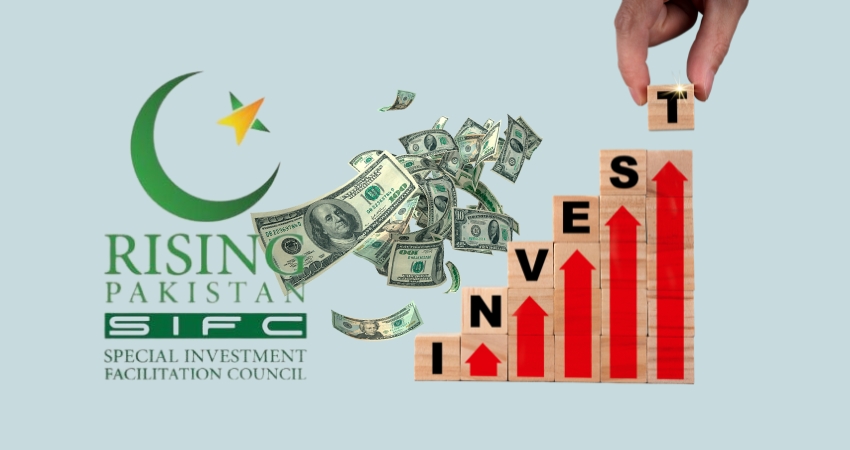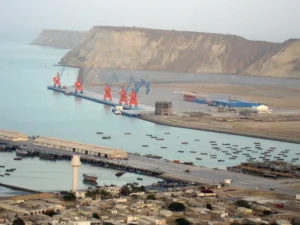The Special Investment Facilitation Council (SIFC) is a key nexus of civilian-military dealings in Pakistan that intends to improve the economy and FDI in the nation. Acting as a ‘single window’ for investment, initially SIFC focuses on Agriculture, Minerals, Defense, Energy, Telecommunication, and Information Technology using whole-of-government approach SIFC that represents all stakeholders. The participation of the military in SIFC is still a subject of debate, but it is perceived to be a correct tactical decision in order to encourage the potential investors particularly from the Gulf area. This article outlines accomplishments of the SIFC and the consequences of military interference in managing the economy as well as calls for reasonable policy fine-tuning for sustainable development of investments and economy.
Presence of Military and FDI Influx
Military leadership is also involved in the SIFC’s affairs as an assurance of stability and security to facilitate FDI. Contrary to traditional perceptions about military’s role in Pakistan’s economy, having military representation in economic forums helps the investors and establish the country’s political stability and its ability to protect business contracts, in the event of a change of government as evident by the recent investment by Kingdom of Saudi Arabia (KSA) and United Arab Emirates (UAE).
The increase in FDI is well illustrated by the sharp rise to 172% in April 2024 as the amount of investment increased from $131. 9 million to $358. as compared to the same month of the previous year 84 million. This indicates the highest FDI inflow in the past 51 months as reported by the State Bank of Pakistan (SBP). In the context of FDI, it gained 39% in March 2024 and reached at $258.04 million on a month-month basis. All these figures point towards the fact that SIFC’s action plans have quite reassuring effects on investors and economic environment.
SIFC’s above strategic moves are positive in identifying investments and strengthening the position of the embryonic market of Pakistan. According to the Ministry of Investment, FDI flow was recorded as $1.46 billion dollars comparable to $1.35 billion of same time period in the last fiscal year. This year-to-year increase indicates that there is continuous expansion of the foreign investment inflow. Notably, leading investors for 2024 were identified as China, having invested $177.37 million, UAE and Canada contributing to $ 51.93 and $51.89 million respectively. This diversification of investment sources explains the increasing investment attraction to Pakistan by international investors.
Sectoral Focus
The SIFC of Pakistan has been effectively implementing several pioneering initiatives to enhance the country’s growth and technological sectors. The Special Investment Facilitation Council (SIFC) has played an important role in the development of Pakistan both economically and technologically by providing important high impact projects and necessary foreign investment. One of its major accomplishments is the backing of PKR 12.5 billion Zone Development Agreement between National Radio Telecommunication Corporation (NRTC) and Special Technology Zones Authority (STZA) – focusing on high tech production. This has been established to spur innovation and development in technology in Pakistan so as to encourage the development of technologies required in the country.
Further, SIFC has played a role in the development of the Pakistan Digital City in Haripur; comprising of an IT Special Technology Zone, worth PKR 8 billion. This project has the potential to create more than 4,000 high-tech jobs and earn the worth of $ 25- 50 million per year to compete in the global technological market. Similarly, the council has backed Pakistani startups to go global and Bookme’s foray into Saudi Arabian Riyadh market is an example that signified a strong shift and testimony in bilateral relations and in the realm of economics.
SIFC’s commitment for sustainable development can also be seen in support of renewable energy as part of its portfolio. For instance, the transformation of a thermal power plant to a 300MW solar power, which is a $200 million FDI. This change seeks to produce affordable solar energy, reducing cost of production and achieve $44 million annual savings on importation and help Pakistan address energy problem and embrace green energy.
In addition, the council has also improved the business relations of Pakistan with other countries through bilateral trade and investment. The joint venture to export pink salt between Miracle Salt Collective Inc. (USA) and Pakistan Mineral Development Corporation (PMDC) with a proposed investment of $200 million will dramatically change the export map. In the agricultural sector, the recent milestones are the signing of agreement in alfalfa feed and the Green Corporate Livestock Initiative with Saudi Arabia and Brazil respectively, shows scope in livestock farming in Pakistan and expansion in the international market.
Also, Pakistan is losing trillions of rupees due to smuggling, counterfeiting, illegal trade, and tax evasion, according to a report by the Action and Counter Illicit Trade Alliance. International institutions like the World Bank and IMF have called for improvements in the tax system. The International Tax Cooperation Fund (SIFC) is expanding the tax base and implementing a robust track and trace system through reforms in the Federal Board of Revenue. Pakistan has potential for 24 trillion PKR tax collection but currently only achieves 9 trillion PKR. Prime Minister Shahbaz Shareef is working with SIFC to increase tax revenue and curb smuggling and tax evasion.
Policy Adjustments for Sustained Growth
SIFC is a key institution in Pakistan’s economic governance, promoting its image in areas like information technology, renewable energy, and infrastructure development. However, the observed active participation of the military in economic governance has caused some concern over the possible diminution of the civilian monitoring role. While military participation has been effective in attracting investments, it is crucial to ensure it does not dominate economic policies through military imprinting. Fundamental Policy changes are needed to maintain long-term investor confidence and a favorable business climate.
The participation of both civilian and military leaders in SIFC is to maximize the two sectors’ collaborative effort which means that certain checks and balances must be put in place to ensure an equal distribution of powers. The enhanced military function has to be supported by effective civil authorities in order to remain inclusive and sustainable in terms of economical operation.
SIFC embodies the synthesis of aptitude from both domains that is intended to strengthen the investment structure of Pakistan. Conclusively, SIFC represents Pakistan’s strategic approach to attracting FDI and stabilizing its economy, requiring balanced, inclusive governance through broad policy adjustments, leveraging civilian and military leadership for sustained growth.

Alina Fayaz
Alina Fayaz is a student of MA IR from Liverpool John Moores University and is currently working as a researcher and content creator at certain platforms.




